The National Public Health Emergency Team's decision to shut all pubs and restaurants in Dublin for a further three weeks may be the final nail in the coffin for many establishments in the capital, and it is nothing short of a disgrace.
The Irish hospitality sector, like hospitality sectors all around the world, has been brought to its knees by the COVID-19 pandemic but had been showing green shoots of recovery prior to NPHET's damning verdict.
With the number of new cases spiraling out of control in Dublin, NPHET and the Irish Government saw fit (rightfully) to move the capital to level three on the new Living With COVID Plan to curb the spread of infections.
Cinemas and museums were closed, household visits were limited to visitors from just one other household, and, of course, restaurants and gastropubs were forced to close their indoor sections to customers once more. Establishments can now only serve up to 15 customers at a time on outdoor terraces for the next three weeks, while wet pubs (pubs that don't serve food) were forced to postpone their reopening yet again.
These severe new restrictions were announced on Friday afternoon and it is the timing, more than anything else, that leaves a sour taste in the mouth.
Pubs and restaurants were forced to close on a moment's notice, fully closing their indoor sections by midnight on Friday and it is clear that NPHET lacks an ounce of empathy.
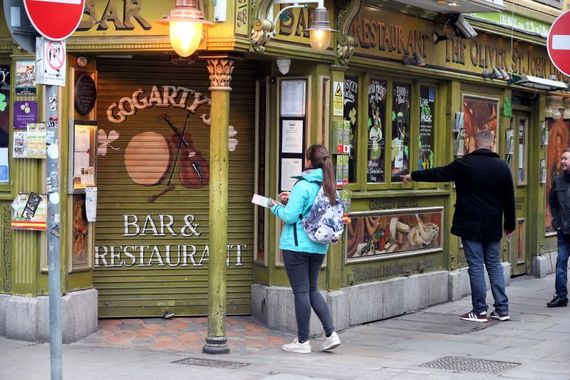
Oliver St. John Gogarty, Temple Bar, Dublin.
How many pubs and restaurants had ordered in crate-loads of perishable stock to deal with a busy weekend schedule?
How many establishments had been taking bookings all week in the hope of yet another fully booked weekend?
How many will now be crippled financially over yet another case of spoilt stocks and uncertainty over how to pay their staff's wages with no identifiable source of income coming in?
So many establishments that form the lifeblood of Dublin City now face financial ruin once more all on the whims of an unelected public body.
For the most part, pubs and restaurants have been compliant all over Ireland since their reopening in June.
Their staff wear the appropriate PPE, they take customers' details for contact tracing purposes, they space tables apart from one another to ensure that two different groups don't inadvertently come into contact with each other, and they ask all guests to sanitize their hands before taking their seats.
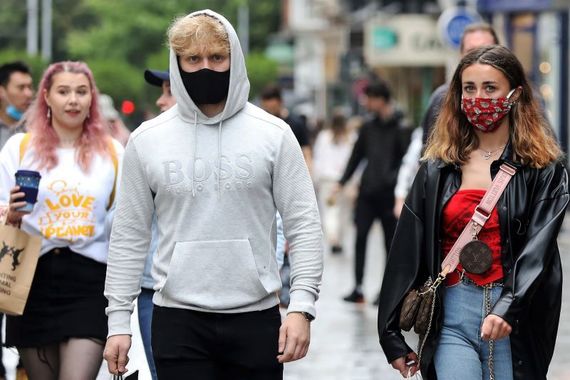
Public wearing masks in Dublin city centre.
The risk of catching COVID-19 at a pub or restaurant from a member of staff or a different table is minimal and, yet again, pubs have been made a scapegoat.
Maybe people could accept the closures if it hadn't been done in such a tactless and heartless way.
The fact that Dublin's 14-day incidence has sky-rocketed in recent weeks has not exactly been a secret and many people had long accepted that more severe restrictions were required in the capital.
Why then, did it take until Friday afternoon to officially announce the closure of pubs and restaurants?
Would it not make more sense to announce the closures on Monday and give establishments until the end of the week to use their stock and get some sort of contingency plan in Ireland?
Did they think that this surge in recent cases was going to simply go away if they delayed the decision long enough?
People may point to the fact that restaurants and pubs can still operate outdoor services, but what good is that in Ireland going into October?
The weather will turn nasty very shortly and the prospect of eating outdoors will soon actively scare people away.
Read more: Irish restaurant owners, employees in NYC demand relief
Then there is the issue that only 15 can dine at one time. What good is that to a restaurant that has been catering to 100 people at a time prior to the recent restrictions?
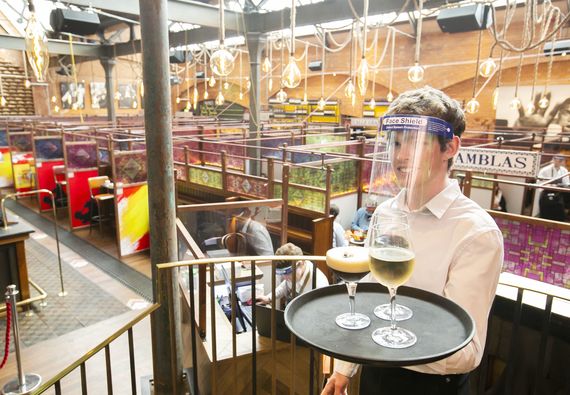
Wait staff inside the redesigned Market Bar, in Dublin.
Simply put, reducing restaurants to outdoor eateries will be a death knell for struggling establishments, and NPHET was under no obligation at all to introduce the measure since pubs and restaurants are allowed to operate indoor service until an area hits level four on the new plan.
Perhaps the most baffling decision of all, however, was the decision to close museums and art galleries.
You will be hard-pressed to find institutions more capable of implementing social distancing than museums.
Most of them cover extremely large areas and almost all of them have implemented some kind of booking system since the outbreak of the coronavirus.
It would be exceedingly easy to keep numbers down to a safe level in the spacious interior of the National Museum of Ireland at Collins' Barracks, for example.
Ireland's cultural institutions have been crippled by this pandemic and could have done without a further three-week closure imposed on them.
To compound this litany of head-scratching decisions, NPHET deemed it appropriate to keep gyms and swimming pools open.
By their very nature, gyms are a breeding ground for any infection, let alone the coronavirus.
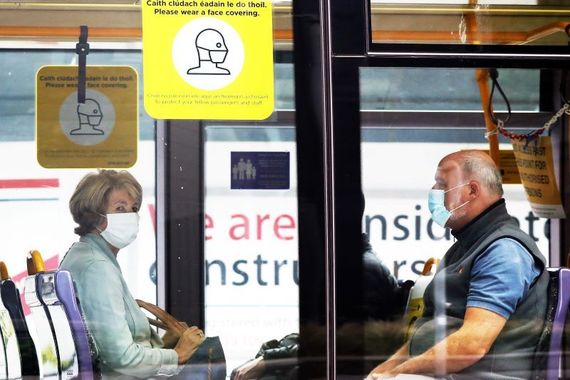
Wearing masks on Dublin's Luas.
Gym-goers frequently pick up weights and equipment immediately after someone has used them and, even though gyms are forced to ask members to sanitize after themselves, it is simply impossible to effectively sanitize every piece of gym equipment they touch.
Gym members are not required to wear masks and it is much harder to keep a social distance in a gym since up to 50 people can attend at any given time.
Yet NPHET has determined that pubs and restaurants represent more of a threat to public health.
There will soon come a time when people will have to accept that they now have to live with this virus, as unfortunate as that may sound, and there will soon come a time when this virus becomes just another disease that people are at risk of getting.
This virus will be with us until 2021 at the very earliest and it makes absolutely no sense to cast some of Ireland's most vulnerable institutions into further financial peril on the whims of a public health group that has been indecisive and inconsistent for much of the COVID-19 pandemic.
Read more: Ireland's lockdowns could be the end for small pubs already in decline
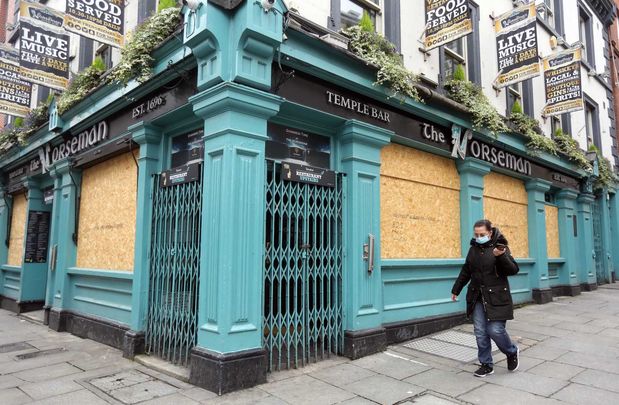



Comments